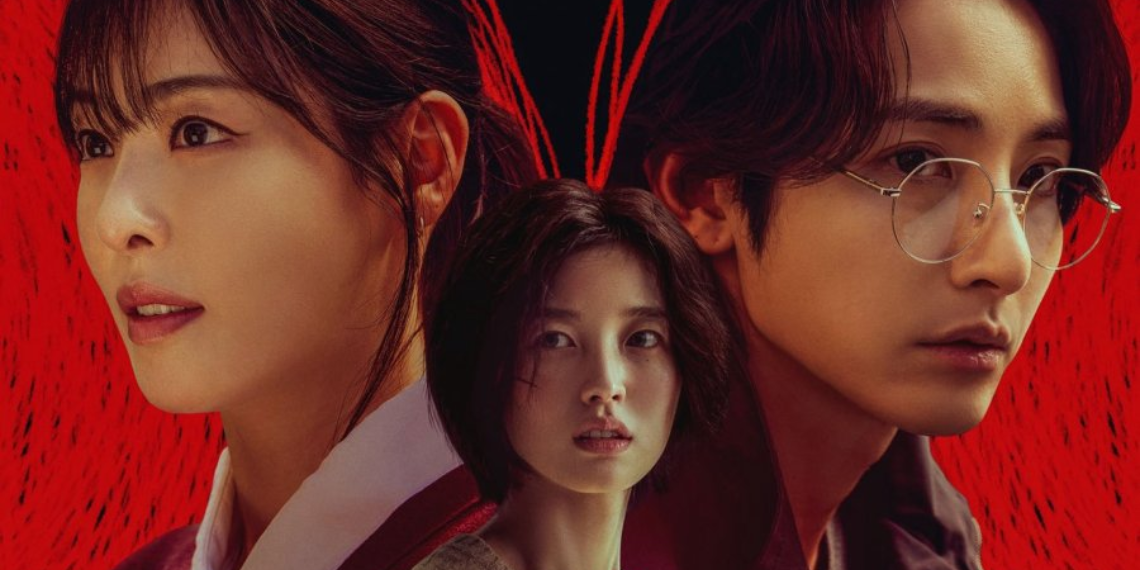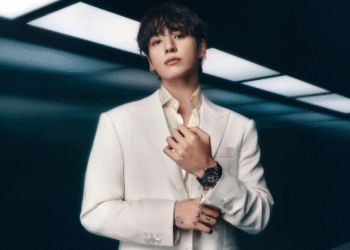The highly anticipated drama, ‘S Line’, starring Lee Soo Hyuk, Lee Da Hee, and Arin, has recently finished airing on its original network, Wavve, leaving viewers with many irreconcilable emotions. Revolving around sensitive, mature, and complex themes of society, sex, and secrets, it is one of the boldest K-dramas of 2025. The title itself is a namesake of the webtoon the series was adapted from by author kkomabi.
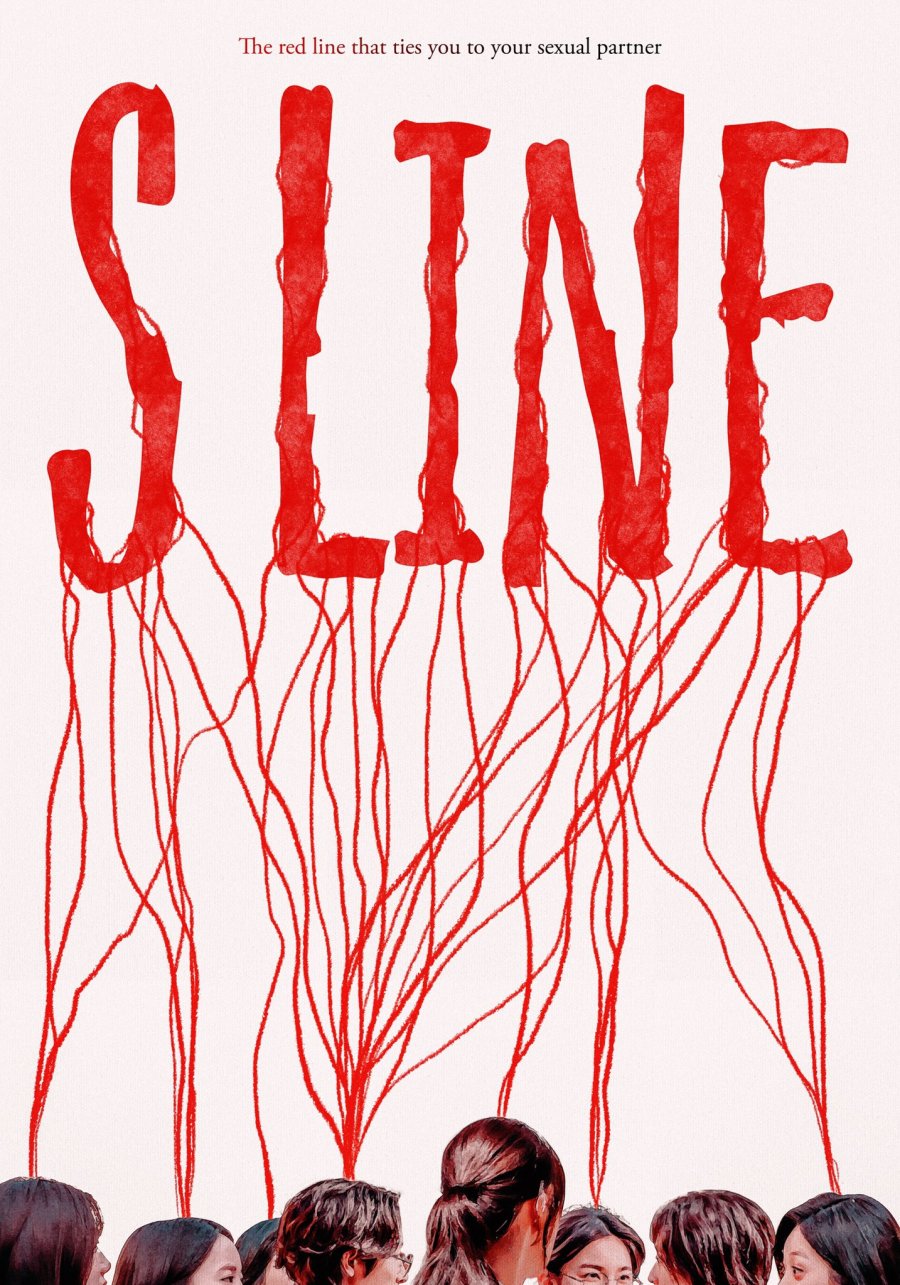
Based on the mysterious phenomenon of people seeing the S Lines, red lines that connect sexual partners, the drama projects how social constructs and human nature can bring out the worst in people. ‘S Line’ has also evoked a bout of fierce discussions across various social media platforms. With many likening S Lines in the drama to the invisible red string of fate binding soulmates across time and space, they’ve evolved into an internet trend.
Supported by the South Korean Ministry of Culture, Sports and Tourism and Korea Creative Content Agency, ‘S Line’ explores the butterfly effect caused by something as simple as a red line connecting sexual partners. It aims to make viewers aware of this effect and how, in today’s society, personal privacy is a need to maintain a semblance of peace among people.

The series begins with Shin Hyeon Heup, a girl with the ability to see these S Lines since birth, which drastically takes a turn towards the extreme. With a chain of unexplained serial murders and the appearance of a pair of mysterious glasses, the story only gets more chaotic. These mysterious glasses tend to appear suddenly near people who are suffering the backlash of an unfulfilling romantic and/or sexual life.
This ‘aid,’ however, is often followed by subsequent chaos, even death, in some cases. Han Ji Uk (played by Lee Soo Hyuk) comes across one such pair during his investigation but overlooks it. It is Shin Hyeon Heup who manages to explain and convince him of the danger and power of these glasses while he’s investigating his niece’s fall from a school building.
But what is a human being if not curious and greedy? Like the other victims of these mysterious glasses, he too gets attached to the power they provide him, saying he can use them for the good of others by prying into their sexual connections. It is at this point that viewers begin to understand the actual extent of influence these mysterious glasses have on human nature, which is bound to bewilder and leave them in a state of moral confusion.
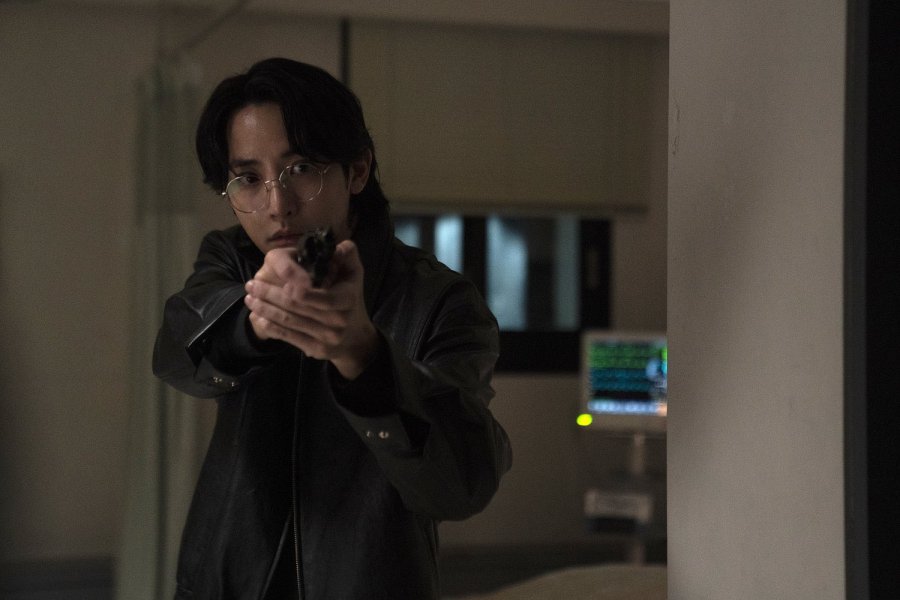
The fast pace and short length of the drama surely pose a concern for the story’s pacing; however, each of the six episodes will give your mind food for thought, down to the very last scene. The only downside of this series is the lack of closure. In the last segment, the plot gets increasingly complicated. Although the main story itself gets an open ending, the events leading to it can give viewers whiplash with the sudden changes in aesthetics and theme. The abrupt shift in genre, from mystery and fiction to time-space dilation and cult rituals, can be a hit or miss, depending on the viewer.
Heavy depictions of self-harm, sexual assault, nudity, incest, depression, school violence, bullying, intentional homicide, adultery, and borderline necrophilia are some of the themes shown in the series. Many of the aforementioned themes can be triggering to some viewers; hence, viewer caution is advised. The lack of official trigger warnings is also something that has miffed many viewers, further lowering the drama’s hit-or-miss score and fueling cynical feedback.
From the hasty actions of Han Ji Uk as a police officer, to questioning the role of near-perfect teacher Lee Gyu Jin (played by Lee Da Hee), or the internal struggles of Shin Hyeon Heup (played by Arin of OH MY GIRL), this drama does a good job of capturing different facets of a morally askew society. The characters, both main and supporting, blend seamlessly into the plot, but frustrating questions remain due to the improper, or nonexistent, endgame for some of them.
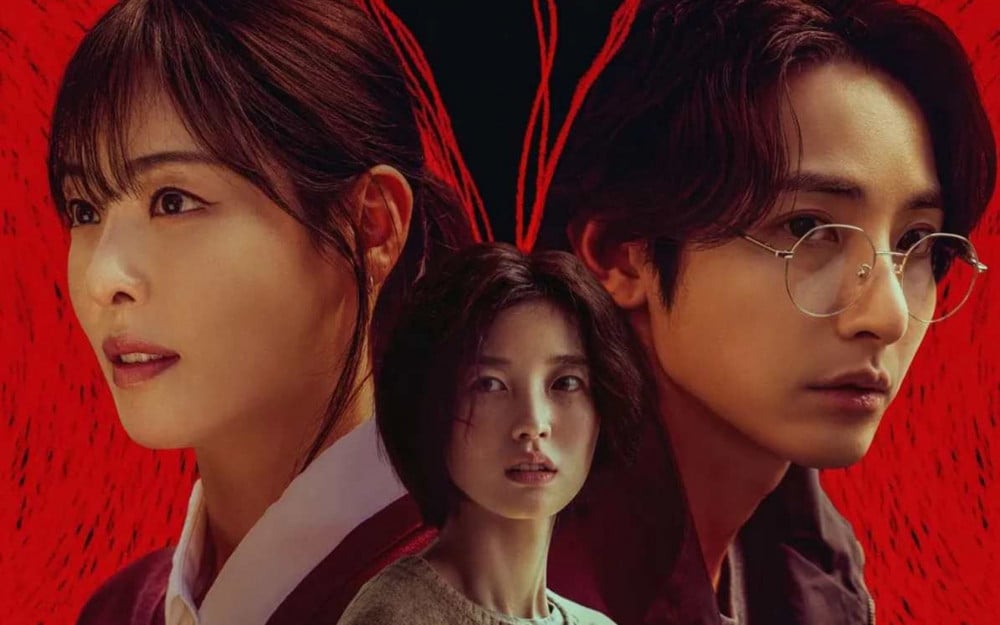
The star-studded cast still delivers its best performances. Lee Soo Hyuk shines in the role of a not-so-perfect, cocky cop who cares deeply for his loved ones and justice. His character can be said to have that ‘morally grey’ hue to it, charming his fans.
Lee Da Hee, as always, has masterful control in portraying her emotions and micro-emotions, giving her character a lot of depth. It also creates a consistent and smooth blend for her role as the deceitful antagonist.
Arin’s character also leaves viewers captivated. Her depiction of the various stages of healing, growth, and emotion that her character, Hyeon Heup, goes through makes viewers hold their breath and empathize with her.

The original soundtrack for ‘S Line’ also won the Best Music award at the 8th Cannes International Series Festival in May 2025, where the show first premiered. The award, presented to music director Lee Jun Oh, marked a significant milestone for the Korean entertainment industry—two years after the win bagged by ‘Bargain’ in 2023 for Best Screenplay. The jury’s praise for the drama’s complex sound design stands true after its release. The OST ‘Between the Lines’ by Park Ye Ni blends seamlessly with the overall theme of the drama and highlights the story. The singer also made a cameo role in the series as the character Hui Won.
In today’s society, where dating and topics related to intimacy are openly discussed, a social stigma continues to persist. The underlying currents of societal expectations, the ethical and moral constraints, the suffocation from not ‘fitting in,’ and the sharp judgments from this very society that come with being ‘too open’ or ‘too rigid’ are some of the many situations showcased within the series.
These situations, choices, and the resulting consequences make viewers gasp and dwell on what could have changed—what the character could have done better to avoid their fate—all while facing the cruel reality of understanding them due to the broken compass of morality.
If you’re a fan of having your brain chemistry altered, not averse to seeing coarse and raw emotions, and can face and question the ‘reality’ as you know it and the ‘reality’ depicted within fiction (or is it?), this drama is sure to sate your appetite. Although it isn’t rated PG-13, the problems depicted in the series also involve the not-so-glorious side of high school and high schoolers’ lives.
The stereotypes, the prejudice, the cruelty, the mockery, the desperation, the madness, the grief, the disbelief—this K-drama contains them all. It also serves as a lesson that not all that is visible is the truth, and not all that is hidden needs to be discovered.
Written by- N.V.S. Akanksha
Connect with us on Instagram | X | YouTube for more content, interviews, & news.

